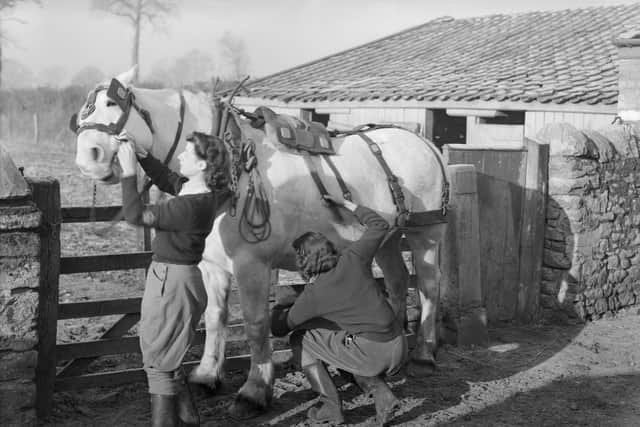Clitheroe woman pens inspiring new book about the Land Girls of World War Two in honour of her grandma
and live on Freeview channel 276
Emily Ashworth has followed her passion for words, farming and history to pen The Land Army’s Lost Women, released last Monday.
The features editor at Farmers Guardian has compiled memoirs and rarely read poems by former members of the Women's Land Army to spotlight their time working on farms to help boost Britain's food production while the men were fighting.
Advertisement
Hide AdAdvertisement
Hide AdThe book includes the story of Emily’s grandma, Vera, who went from studying fashion in Liverpool to working on Low Moor Farm in Clitheroe around 1944, where she stayed until her death in 2017.


"She inspired me to capture the stories of women belonging to a generation that will soon be lost to time. This book is sentimental and emotional, and in honour of my grandma. I absolutely loved listening to her stories. She was a strong-willed lady who always said what she thought. It hit me hard when she passed away, so the book was a way to feel connected to her and help with the grieving process."
The opportunity to meet some of the women featured in the book ignited her determination to keep their memory alive.
“We’re all connected to what they did. There are not many veterans left now so we must all remember them. They so easily sacrificed so much for the greater good. They all had really different stories and backgrounds but the one thing that ties them all together was their motivation to put something bigger before themselves. They all had an iron will but would say, ‘We’re not heroes, we’re nothing special, we did it because we had to do something.’
Advertisement
Hide AdAdvertisement
Hide Ad“They’re still quite fierce. Sometimes, today, we shy away from having those qualities as women and don’t speak up. But those women are headstrong.”


The poems, which Emily called “beautiful” and “striking”, track the ups and downs of working on the farms, including finding love and gaining levels of freedom and independence many had not experienced before, including learning to drive. Prior to the war, women were expected to be housewives or take on “feminine jobs” like being a nurse or domestic servant.
The Land Girls’ trials and tribulations also resonated with Emily as the world was hit by the Covid-19 pandemic during the writing process. Perhaps, it was written in the stars when she gave birth to her second child on VE Day but, either way, she was determined to finish the book, despite it taking double the time she had originally planned.
“It took me six years to write but I didn’t give up because I couldn’t let these stories be forgotten. The Land Girls taught me determination. We witnessed a world crisis, supermarket shelves were empty and farmers had to keep going. There was a rise in people using farm shops. The same happened in World War Two: our food trade was blocked so it was up to the Land Girls to step up and help make us self-sufficient.
Advertisement
Hide AdAdvertisement
Hide Ad"What those girls said was, ‘Yes, there are hard times but you have to pick yourself up and carry on.’”
The book is available on Amazon and the Pen & Sword website, as well as in WHSmith and Waterstones.